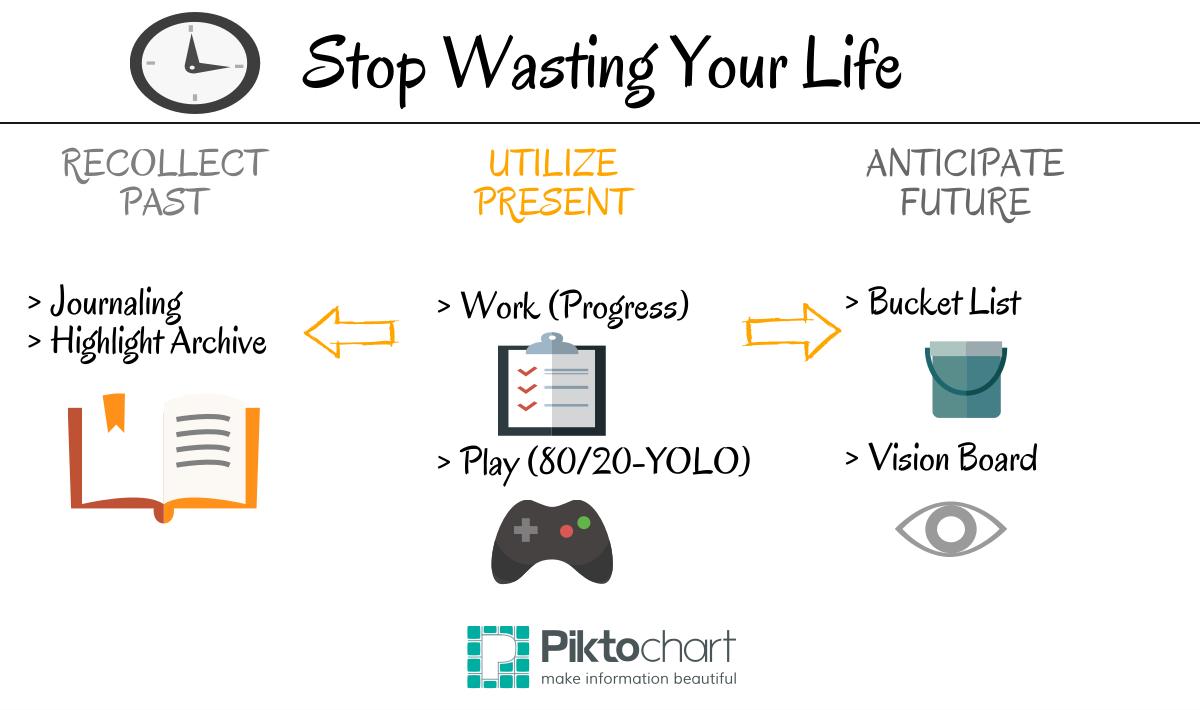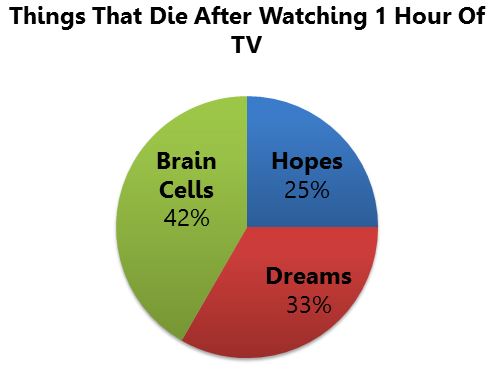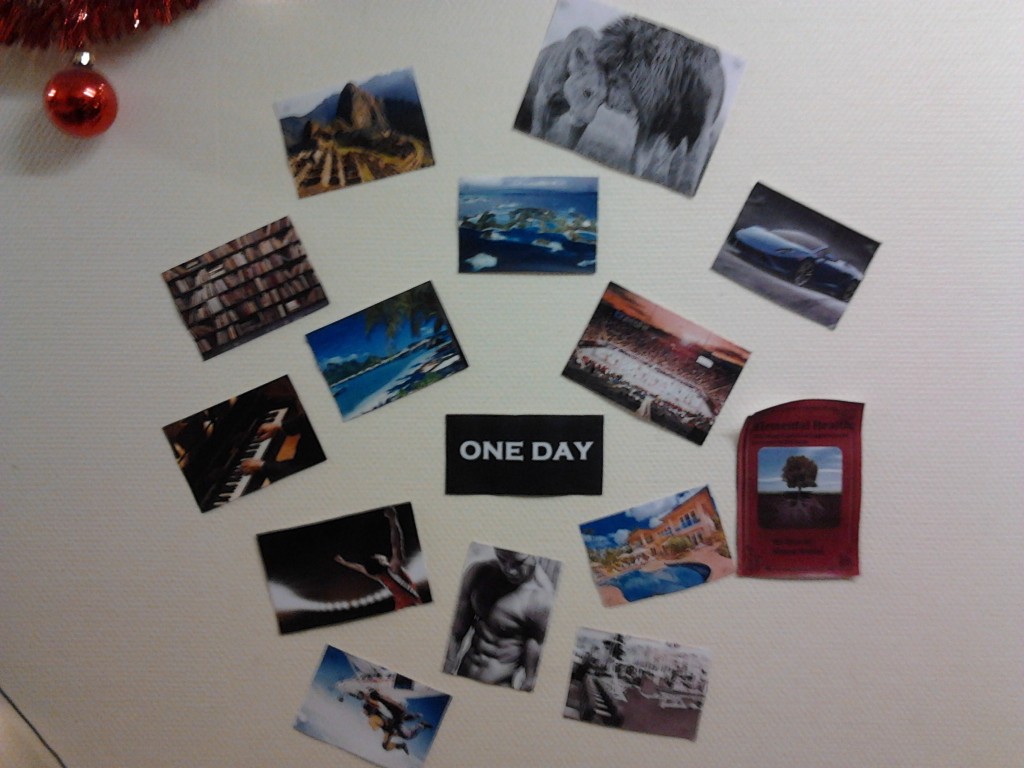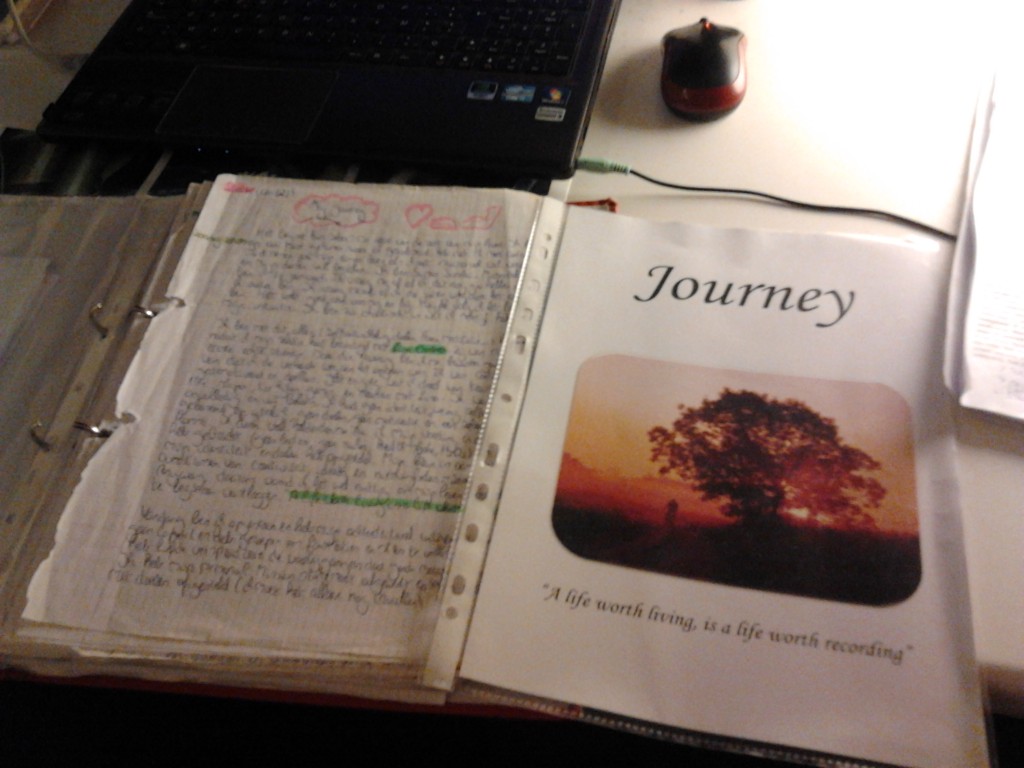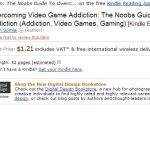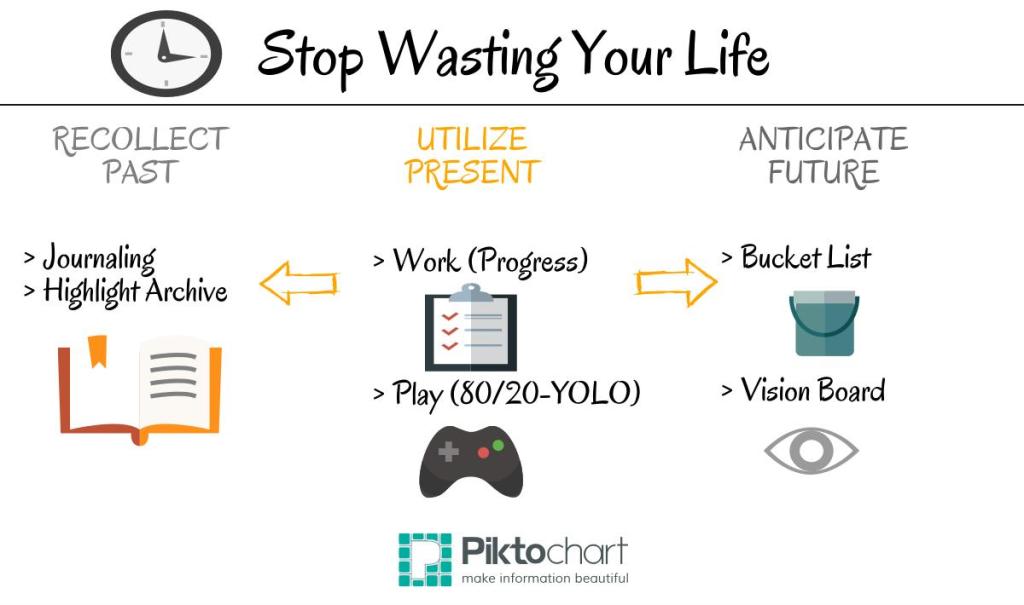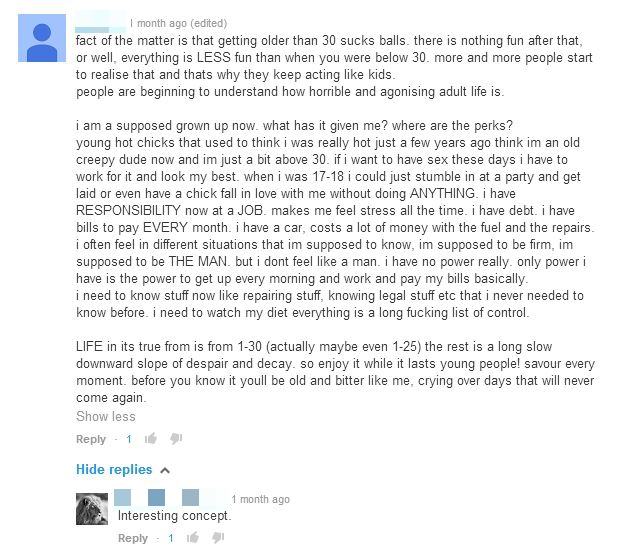“It is not that we have so little time but that we lose so much. …
The life we receive is not short but we make it so;
we are not ill provided but use what we have wastefully.”― Seneca
Time.
tick-tock tick-tock
We all seem to have so much of it, yet don’t realize how short life actually is.
In the meantime your surroundings keep telling you:
- It’ll all work out in the end…
- You’ll find what you want in life..
- Just keep searching and eventually it will come to you.. (This one is killer haha)
- You’re still young, your whole life is just unfolding – take it slow
Yet those people are never in the position I hope to be one day.
I’m writing this post since we’re approaching the end of the year – for many a memorable experience;
Falling in love, starting a business, getting a promotion, becoming father and so-on.
But for most?
Just another year slipping past…
Another wasted year.
Wasted on watching tv, endlessly chasing money and women, making others rich, worrying about what others are thinking about them or just plain old laziness and lack of direction.
Don’t. Do. This.
Aren’t we all looking to suck the most juice out of our life as possible and rise to our greatest potential in all areas? Happiness, fulfillment, health, money, friends, sex and all that awesome stuff?
Here’s how to put your time to better use and stop wasting your life;
—————————————————————————-
Time Perception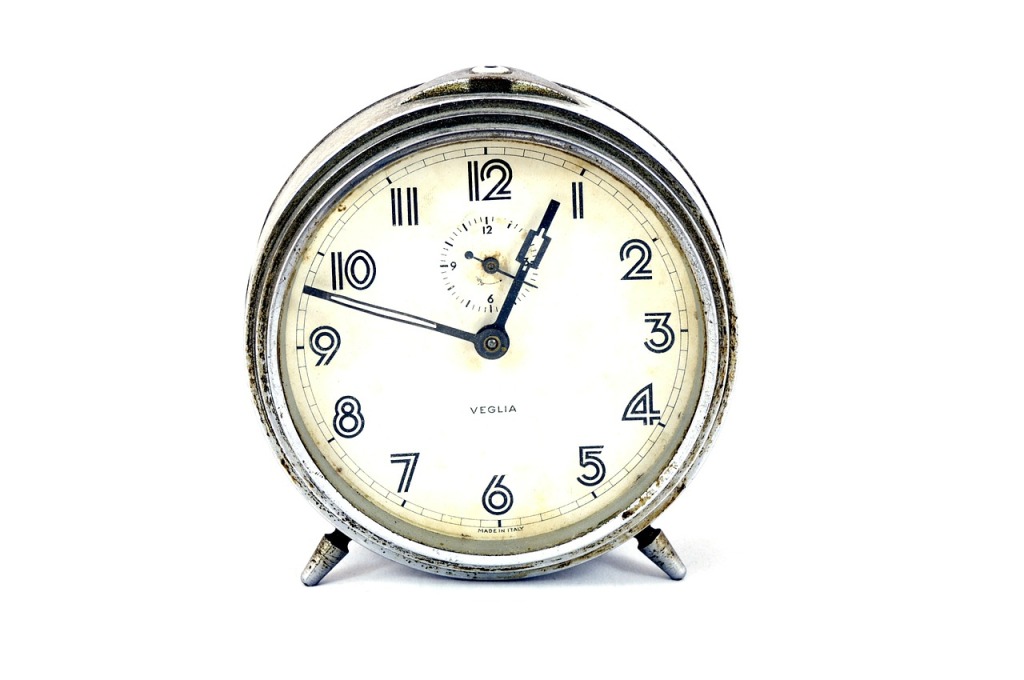
Ever heard someone say; “Wow, the time is flying by!”
The time isn’t actually speeding up – our perception of it just changes.
For Example: When we do boring stuff like sitting in a class we couldn’t care less about, time seems to tick by slowly whist when we’re doing something we enjoy it’s passing by rapidly.
Pretty basic example right?
You hear this especially among older people. When I’m visiting my grandparents they often talk about how there’s another year flown by and how “I’m growing up so fast”
What are you talking about? I’ve been wishing for ages that I could do all the “cool stuff” adults could like driving a car, exclusive parties, sex, travelling solo, living alone, …
But it’s not that time is going faster but as we grow older, there are factors that make it so.
Chronologically speaking we remember the most of our life from the ages of 10 to 30 compared to the years that come after that. This is called the reminiscence bump.
This is caused by the facts that;
- Our memory hasn’t fully developed at earlier ages (childhood amnesia)
- That period has the most impact on our life when it comes to choices
- It’s most likely filled with unique events

After that period we have another spike of our most recent events.
But the time beyond our thirties (on average) is more difficult to remember..
Why is this?
We’ve experienced a lot of unique events already and have become neurally adapted to “new” stimuli.
Most external and internal experiences are new for young children, while most experiences are repetitive for adults.
Children have to be extremely engaged (i.e. dedicate many neural resources or significant brain power) in the present moment because they must constantly reconfigure their mental models of the world to assimilate it, and properly behave from within.
On the contrary, adults may rarely step outside of their mental habits and external routines. When an adult frequently experiences this over-stimulation of the same stimuli, their brain renders it “invisible” because the brain has already sufficiently and effectively mapped those stimuli.
This phenomenon is known as neural adaptation.
Meaning we don’t store many “new” experiences after 30 since our brain doesn’t register them anymore.
Our brain doesn’t store events chronologically in a huge database like computers can. **We store only what’s significant/**useful.
Although this is quite useful to save brain processing power – Here’s the problem with this;
The length of our life is represented in our mind by a story.
It’s made up by the chronological anchor-points/events that we can remember. And since we become increasingly incapable of storing new memories (trough neural adaptation) and additionally forget more old experiences by the deterioration of our brain cells trough aging, drinking, drugs, bad food and so-on, it makes our life seem shorter than it actually is.
Disengagement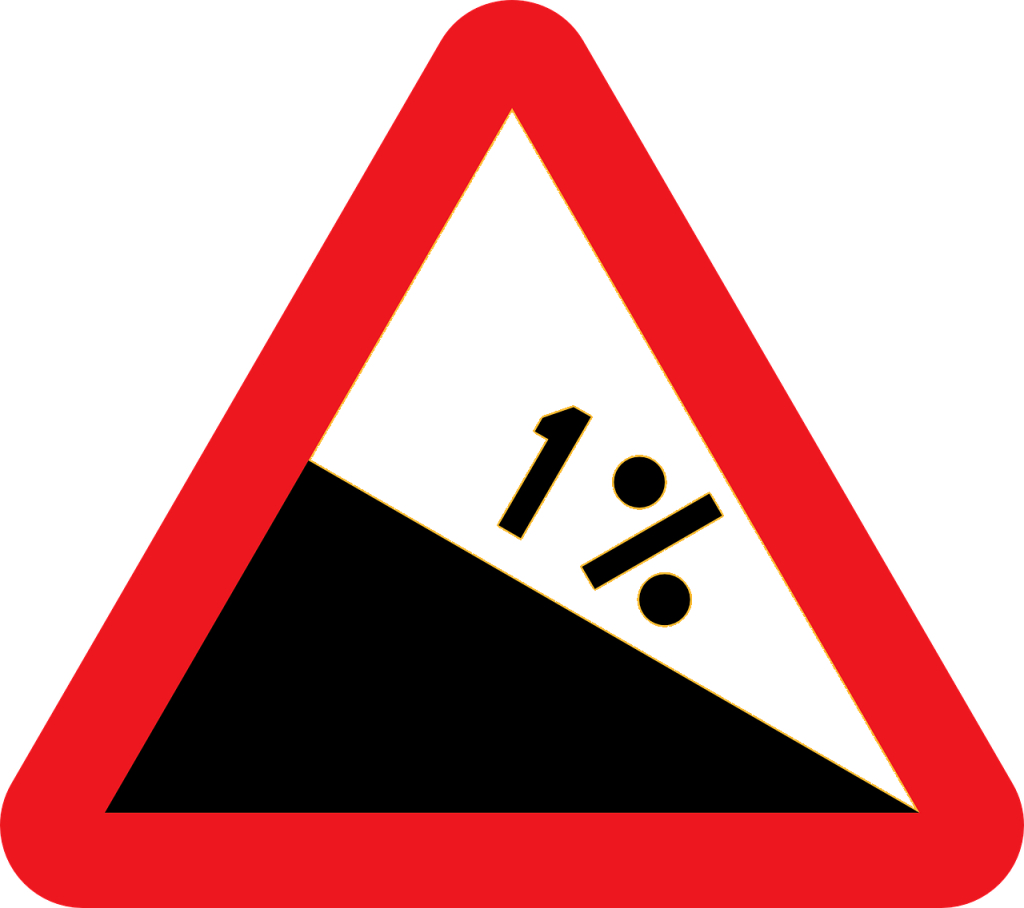
Additionally I’ve noticed in many people that as they grow older they slowly disengage from life;
Watching more tv, going less outside, consume less information, get stuck in routine and slowly turn into plants. “Settling down” as they call it.
Basically they stop seeking new stimuli.
Maxwell Maltz talked about this concept in his book “Psycho-Cybernetics” where he observed people between the ages of 40 and 50 and noted that some started to look and behave “old” whilst others continued to act and look “young” based on the perception they had of themselves and the “drive” they had in life.
“It is not retiring from a job that kills men, it is retiring from life.” – Maxwell Maltz
Our body supplies the energy/vitality required for the anticipated events. If you have no particular goals/aspirations or are too stuck in routine your body will start to shut-down/disengage.
I personally know an entrepreneur well past his forties who’s still excited and dances/talks until 4 AM and jumps over barbed wired fences on nightly swamp-walks with me.
The man looks vibrant and alive.
Conversely I know a man well under middle-age who drags his feet, slumps over and does nothing useful with his time besides playing video games, going to bars and watch tv.
He looks much older than he is and seems fatigued all the time.
Ever heard of the principle: Use it or lose it?
In terms of the mind (which produces the “zest” to live) it’s definitely true.
I conclude that we don’t age primarily because time passes (although partially) we age mentally because we;
- Forget old experiences (neural degeneration)
- Don’t store new ones (neural adaptation & wasteful activities)
- Disengage (we don’t aspire to anything in the future)
- Self-Perception (we see ourselves as “old” and create self-fulfilling prophecies and our body responds accordingly (see post on How Visualization Shapes Your Life)
Result?
Our body loses a reason to stay alive and deteriorates slowly.
Who wants that?
I don’t.
And I’m guessing you don’t really want that either..
Solution?
How To Live Longer!
ENGAGEMENT!
(And with that I don’t mean you should look for a woman to be happy..)
I’m talking about keeping the mind active by continuously pursuing new, cognitive/physical/social/financial undertakings that stimulate you into growing as a human being.
(e.g. – Not becoming a plant-zombie)
- Pick up a new hobby
- Write a new book
- Build a new website
- Change your gym
- …
My grandfather is approaching 80 years of age and is still very active by working in his garden, building little wooden huts and so-on. He always has something going on that keeps his mind active.
I can have deep, meaningful conversations with him about life, family, work ethic, purpose and love.
He is engaged
Conversely – he has known men and women who are far below his age that have been dead for already 20+ years by living a mediocre, disengaged lifestyle.
They lived disengaged
“Alright Simon, sounds good! Any tips on staying engaged?”
Engaging In The Present
How can we avoid wasting our time & stay engaged in life?
Work
In the book “7 Habits Of Highly Effective People” by Stephen Covey I was introduced to where everyone should be spending his time by doing “first things first”
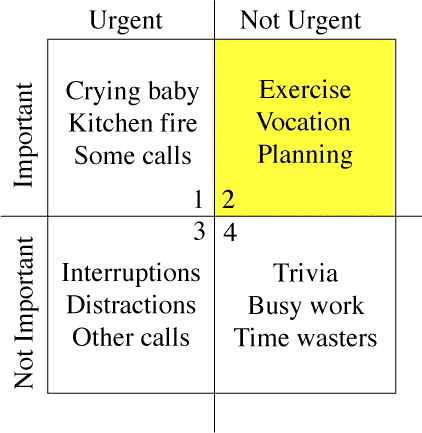
It’s a really easy concept that says we should focus our time (entirely) on quadrants one and two.
Basically it’s continuously working on your goals to get where you want to be. Progress is what will generate more life and make you happy and fulfilled.
Focus on what really matters and eliminate the inessential completely;
- Unimportant relationships
- Excess sleeping
- TV, video games, reading fiction (most of it)
- Facebook, mails, non-goal related websites, …
- …
Note: *This might not be an actual scientific study*
Anticipate
Additionally to your goals it’s recommended to keep a bucket list and a vision board. This will induce your desire for the future.
A bucket list is basically a list of all the things you want to do before you die.
For example;
- Skydiving
- Wakeboarding
- Make a million
- Threesome
- …
A vision board is a mental reminder of the future you are working towards. Since we act according to the image we have of the life we desire, our altitude (succes-level) is partly created by our thoughts. (think big – get big, right?)
Here’s mine;
Play
Conversely by doing this we’ll be draining our mental battery life and need to re-charge fairly often. Leisure isn’t meant for mere pleasure or enjoyment but to increase our efficiency at working on our goals.
Here’s a short story to illustrate what relaxation can do for your productivity;
Suppose you were to come upon someone in the woods working feverishly to saw down a tree.
“What are you doing?” you ask.
“Can’t you see?” comes the impatient reply. “I’m sawing down this tree.”
“You look exhausted!” you exclaim. “How long have you been at it?”
“Over five hours,” he returns, “and I’m beat! This is hard work.”
“Well, why don’t you take a break for a few minutes and sharpen the saw?” you inquire. “I’m sure it would go a lot faster.”
“I don’t have time to sharpen the saw,” the man says emphatically. “I’m too busy sawing!”
Make sure you make time for true re-creation to re-charge.
- Deep breathing
- Taking a warm bath with scents (really recommended)
- Listening to an audio book
- Music
- A high quality movie
- Spending time with important friends
- Spending time with your girlfriend
- …
(I call it the 80-20 YOLO-rule)
Never go full YOLO.
In our society where instant gratification is widely available and continuously enforced it’s easy to succumb to our more primitive desires for mere pleasure. (and that’s what most our doing – leading eventually to decay)
But by rewarding long-term, goal-oriented effort we’ll be conditioning this behavior and make it more likeable to re-occur in the future.
So that’s the first part of living longer: Negating neural adaptation by staying engaged and eliminating wasteful activities.
The second part is to negate neural degeneration (mainly forgetting) by simply
Recollecting The Past
Journaling
Creating a journal is one of the most effective methods I’ve discovered to increase the amount of good memories you can keep. By writing down experiences, thoughts and drawing images in your journal you create anchor points that expand the subjective length of your life.
I’ve been journaling for a whole year now and has enabled me to continuously reflect on what I’m doing and what I need to do. Basically it keeps you on track and stores great memories.
Random Entry;
Not that one .
Hahaha – that one neither.
Ok – 31/08/2014 (translated for your convenience ;))
“Today was an interesting day. I’ve been going out yesterday and was noticeably more “grounded” and calm than usual.
I’ve had some notable interactions but didn’t quite push myself. I was fun, had good eye contact and good use of voice. At the end of the evening a girl named A. approached me. Short, cute, sexy as fuck. I talked really slowly and confident and kept our eyes locked. I kissed her in less than a minute. Was fun – cool experience.
I called her today (good) but she didn’t pick up since there was something wrong with her voice apparently (booo). note: talk more clearly and slowly when you go out – seems to work.
Don’t know what’ll happen when we meet up again – we’ll see.
Additionally I’ve been reading, blogging (almost 50 likes on facebook -> nice!) Also haven’t eaten anything today since I wanted to try out some fasting.
Maybe turn this into a habit? -> Research
Tomorrow; Cardio HIIT, Cooking: Meal Prep, Schooltask, Pay gym membership”
I didn’t actively remember this until I re-read it just now. If I hadn’t stored it in my journal it might have been lost for ever.
Some tips when journaling
- Write before 21:00 (more recalling and less brain fatigue)
- JWS (just write something – even when you don’t have much to say. This way you can sustain the habit)
- Write manually (or try manual & digital and see what works for you)
- Upsides: Drawing, creative, easily portable, old-school feeling, physical copy, ∞ battery life
- Downsides: No CTRL+F to find entries, no video, audio or links, not password protected, writing is slower than typing
- Useful Questions
- What did I do today?
- What made today valuable?
- Thoughts, ideas, new things learned?
- What was great about today? (focus on the positive)
- What were today’s special highlights?
- What makes tomorrow important?
- What will I do tomorrow? (3-4 “Big Rocks”)
Here’s an article I wrote a while back about journaling
Highlight Archive
Additionally I also keep a folder on my laptop with all the highlights of my year. It’s just a compilations of videos, audios and photo’s. (basically just an addition to my physical journal)
Here are some entries;
Event
Crossfit
Fibo
By storing these so-called anchor points we’re able to increase the subjective span of our life.
Additionally keeping track of where you’ve been will serve as a guide for our future. When there’s no recollection of the past, there’s no guidance for the future since our future is build on yesterdays errors.
Keeping a journal/life archive (digital or manual) is something everyone should do imo.
Other things you can do to negate neurodegeneration is by improving your health and increase your self-perception
Essence
Alright so that’s all I have to say today on getting the most out of your life and spending your time in a useful way. Here’s a short re-cap;
- Negate Neural Adaptation
- Engage In The Present
- Work (Progress towards goals)
- Play (“true recreation” to increase efficiency – 80/20 YOLO-rule)
- Anticipate The Future
- Bucket List
- Vision Board
- Engage In The Present
- Negate Neural Degeneration
- Recollect The Past
- Keep A Journal
- Highlight Archive
- Other
- Recollect The Past
Let’s end with a quotation I compiled from several sources;
Poor is the man never able to unshackle the chains of his instinctual conditioning.
Predestined for waste, indulgence and decay is he who’s incapable to recollect yesterdays events, utilize today and anticipate the wonders of tomorrow.
Blind of time we waste much of it.
Merely existing, not living.
Don’t be without true pleasure or improvements of the mind – to avoid weeping over the days that will never come again.
Your life is the result of how you choose to spend your time.
Make the right choices to avoid regrets when you get older.
“What’s YOUR strategy to get more out of your life?”
———————————————————-
If you feel like this post can help anyone out that you know, feel free to share it with your friends or send it in a mail to your mom! It helps me out a lot! If you’re having any thoughts or questions on this topic, feel free to share those with me in the comment section below.
Take care,
Simon
